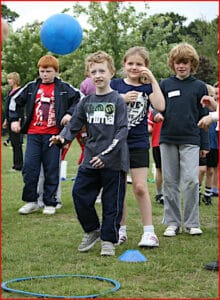
Of course, money has been a factor since forever. Kids from affluent families have always enjoyed lording it over those whose economic situation is not so great. Even if their parents won’t spring for the latest phone or a car, privileged kids find multiple ways to make their status known. Along with financial superiority, the popularity game has always been uncomfortable at best and vicious at worst. It doesn’t take long to learn that squashing and slandering others is one way of making yourself more noteworthy and admired in the little universe of school.
Some causes of social anxiety have always existed. Betrayal is one. There is always the girl who pretends to be your bestie, totally worthy of being confided in, and then she goes around telling everybody all your secrets. She was there in 1885, and she’s there now. Existentialist philosopher Jean-Paul Sartre said, “Hell is other people.” This should not be true at school, but unfortunately, it is. School can be especially horrid for kids who have a bad home situation and hope to escape it at school, only to find persecution there too, just in different forms.
Here too? Yes.
Educational institutions are rife with psychological trauma as part of the daily background stress. It’s not even necessary for something on the Dread List to happen on any given day, since every day is fraught with the sense that something awful could happen at any minute. In gathering basic information to create the BrainWeighve phone app to help kids avoid and escape obesity, Dr. Pretlow’s team learned that around half of the life situations they dread originate — you guessed it — at school.
In a piece titled “Obesity and the Emotional Toll it takes on Children’s Mental Health” the author Mahender cites the major areas where this is apparent. Bullying certainly is one, and it may manifest both verbally (taunting) and physically (some kid grabbing a handful of an obese child’s flesh and saying, “Can you pinch an inch?”). Another type of unwanted attention originates in negative stereotyping and social shame and stigmatization. Many types of discrimination are available to cruel schoolmates who go in for that sort of thing. Two of the most common results are chronic depression and, of course, emotional eating.
The writer reminds parents:
These children may hear from peers (and even adults) that being overweight is their own responsibility. They could receive insults.
[C]ompared to his slimmer friends, your youngster who is fat is more likely to suffer from poor self-esteem. His low self-esteem may cause him to feel self-conscious about his appearance, and his lack of confidence may affect his schoolwork.
Childhood obesity has financial expenses in addition to health expenditures, and your child’s weight issue is closely linked to his emotional life.
Your responses and feedback are welcome!
Source: “Obesity and the Emotional Toll it takes on Children’s Mental Health,” NewsPatrolling.com, 10/19/22
Image by Dark Dwarf/CC BY-ND 2.0

 FAQs and Media Requests:
FAQs and Media Requests: 











